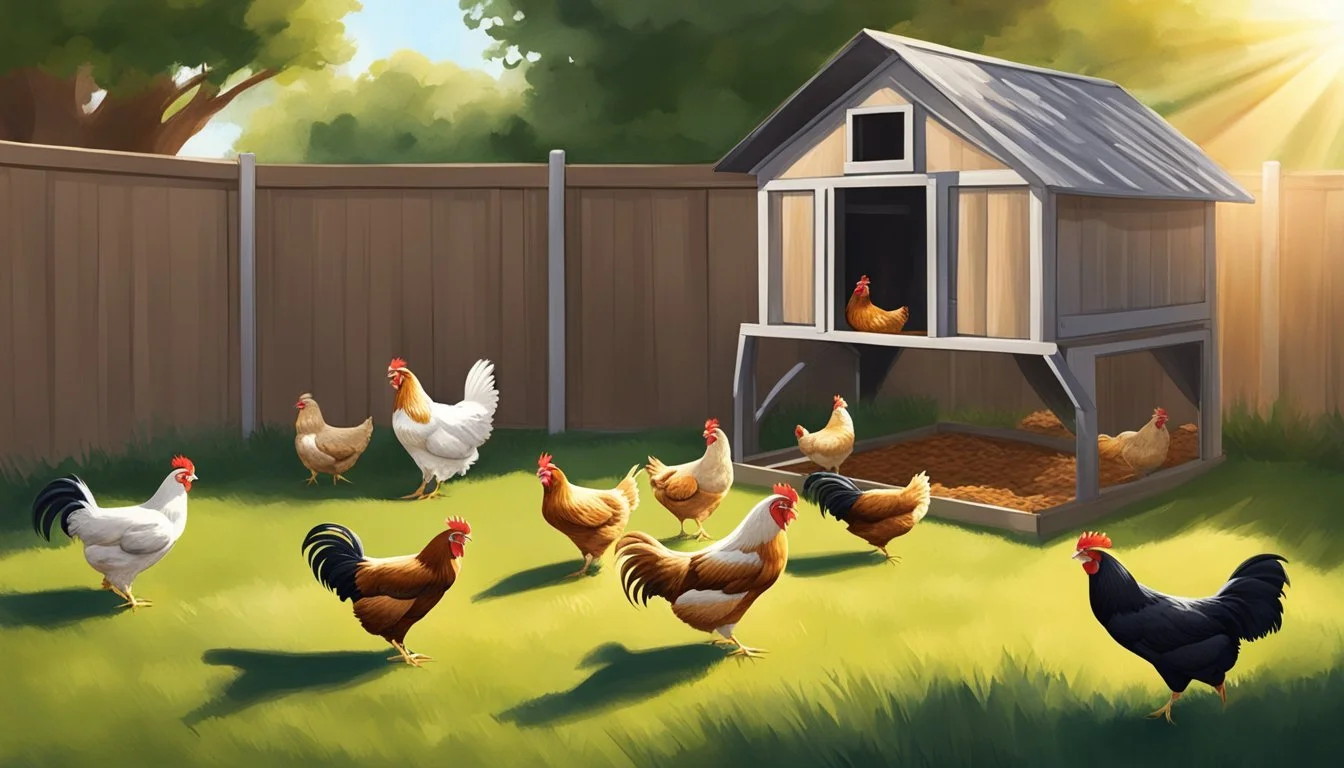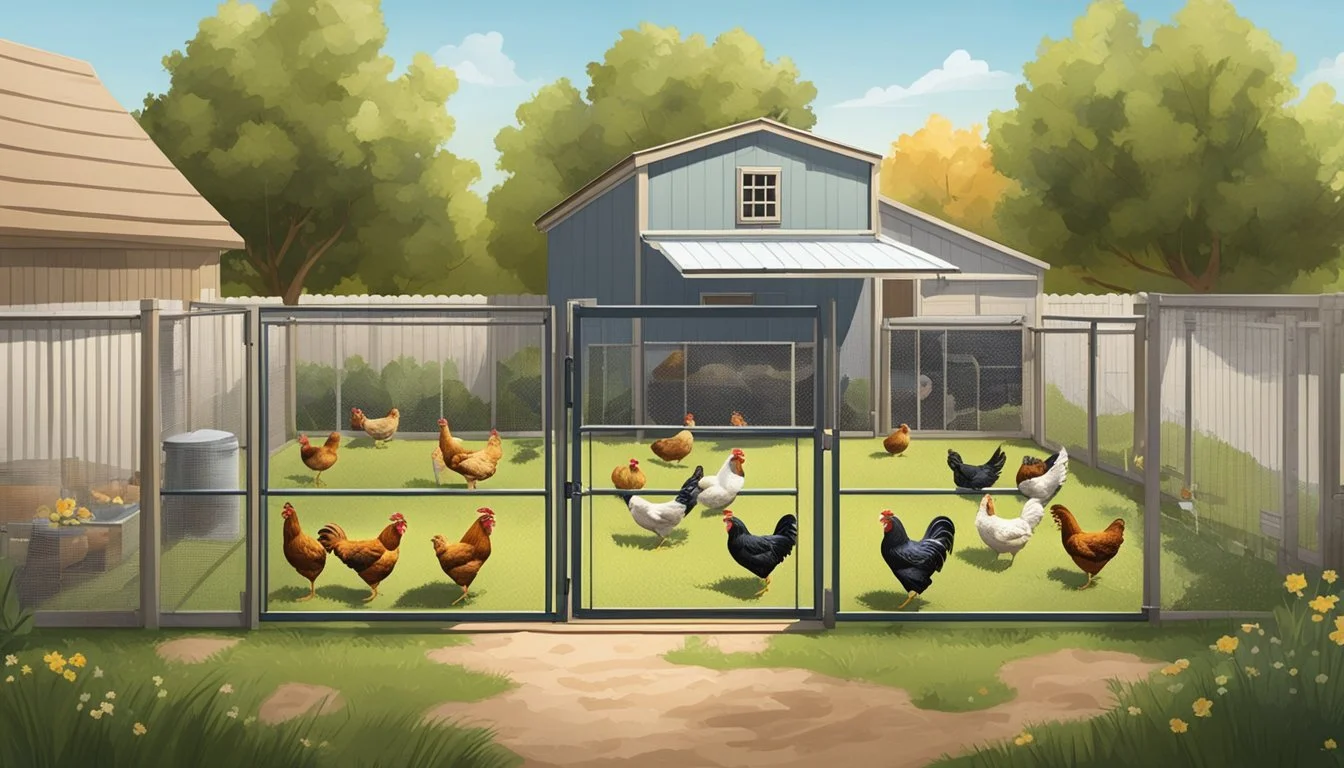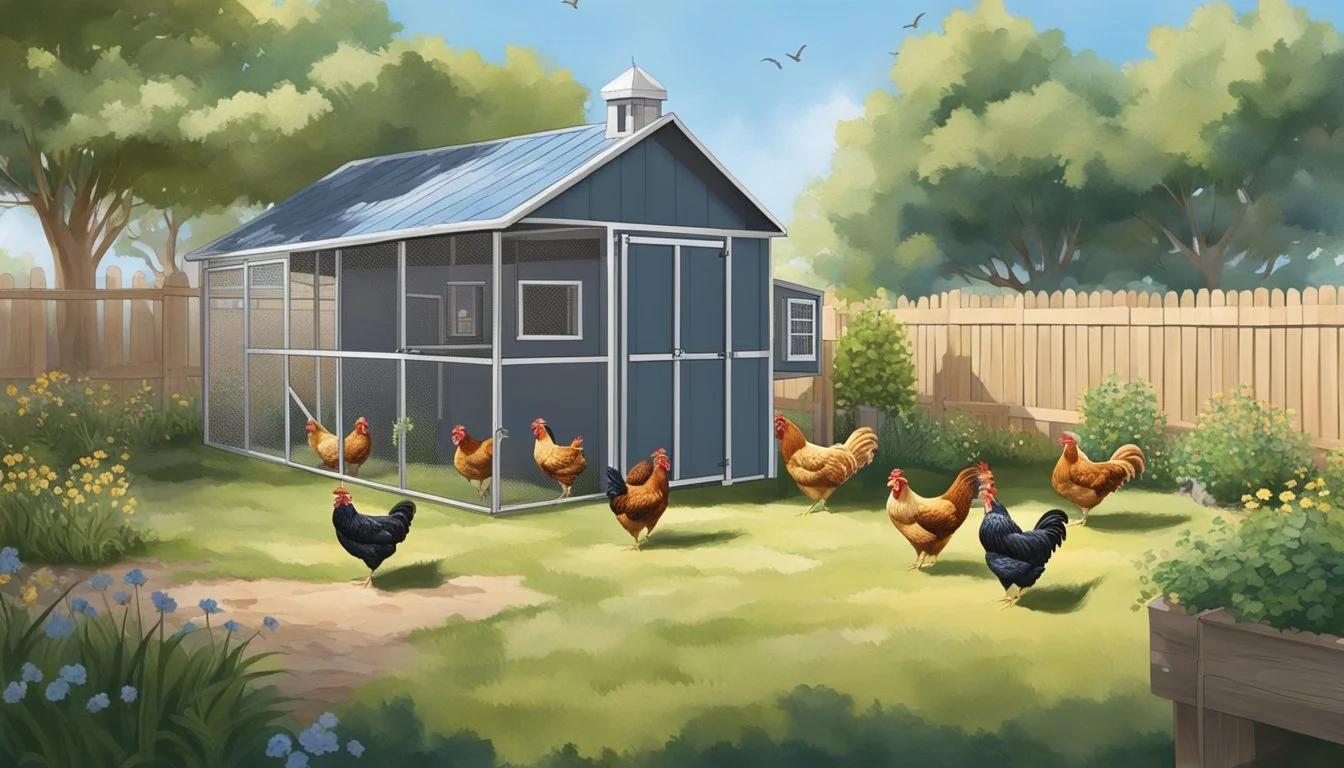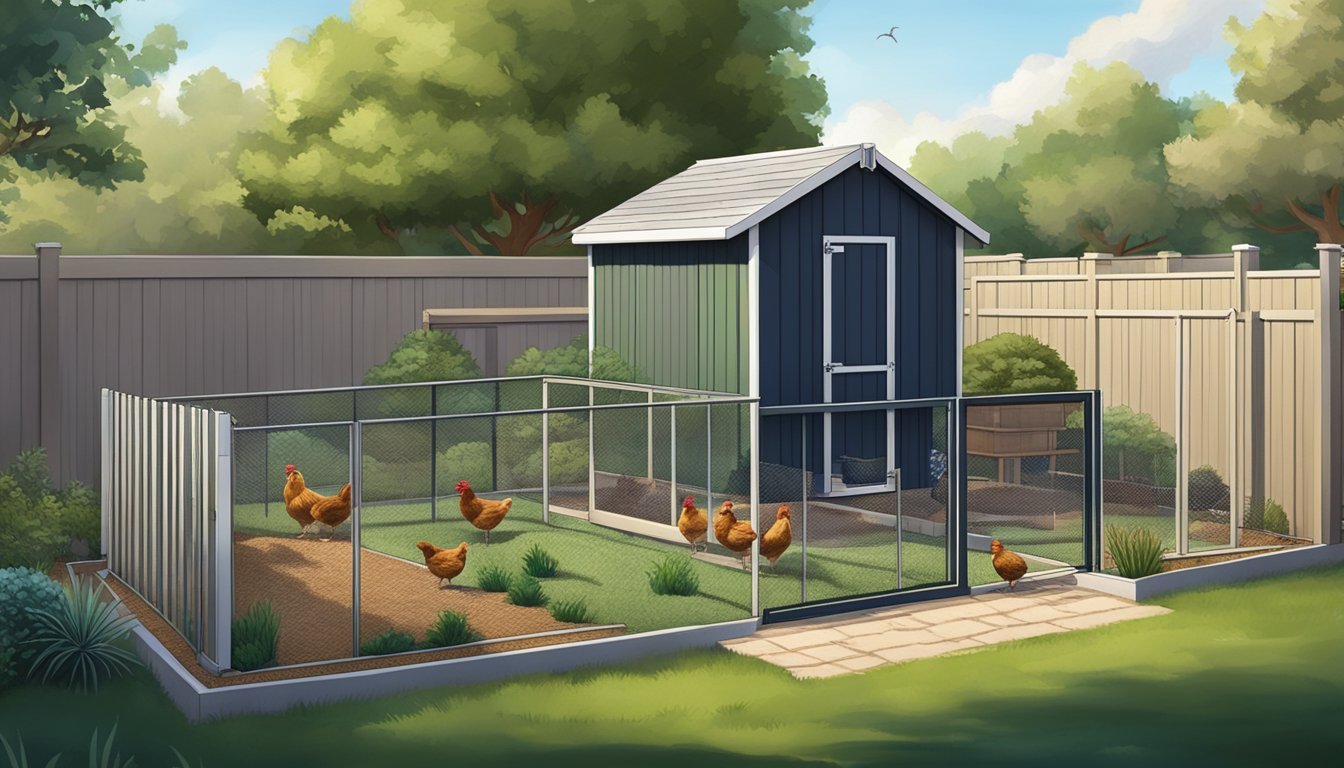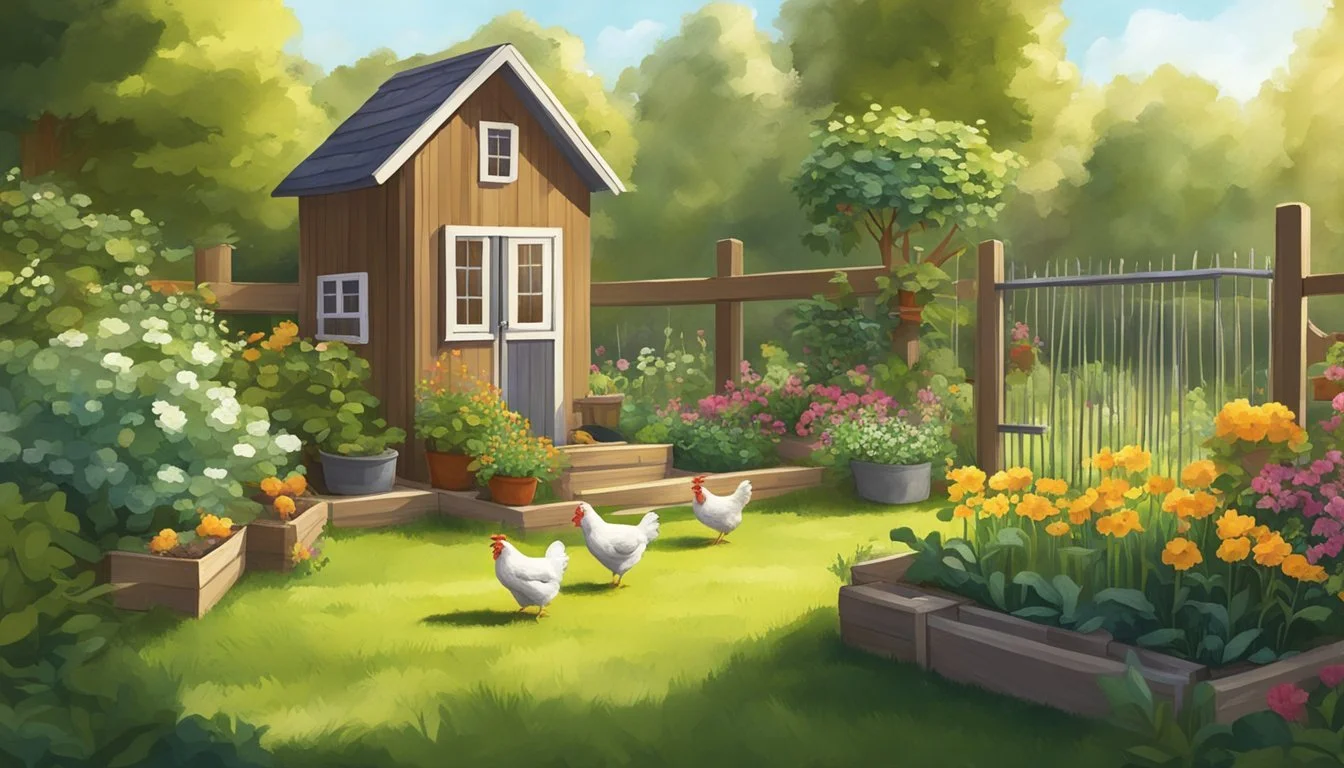Keeping Backyard Chickens in Odessa, TX
Essential Tips for Success
Backyard chickens have become a subject of increasing interest in Odessa, Texas, as residents look for ways to secure a fresh supply of eggs amidst fluctuating market prices. The city has been weighing the benefits of allowing homeowners to keep hens, focusing on the balance between urban life and agricultural practices. This consideration reflects a broader movement across various Texas cities where urban agriculture provides both sustenance and educational opportunities for families and individuals.
The city of Odessa has historically prohibited the keeping of chickens within city limits. However, recent discussions by the Odessa City Council signal a potential shift in policy to support residents who wish to raise hens in their backyards. Advocates for change emphasize the importance of sustainability and local food production, and they are motivated by the successes of other Texas cities that have implemented similar ordinances.
A rule change in Odessa could permit the ownership of a limited number of hens, enhancing self-reliance for many residents. This policy shift is being fueled by community engagement and the shared recognition of the advantages that backyard chickens can offer. As the local government explores the logistics of urban chicken farming, it is important to consider the implications for animal welfare, neighborhood dynamics, zoning regulations, and public health.
Legal Framework for Raising Chickens in Odessa
In Odessa, Texas, the ability to raise chickens in backyard settings is subject to city regulations. Understanding these ordinances, obtaining necessary permits, and staying informed about recent legislative changes are crucial for residents interested in urban poultry farming.
Understanding City Ordinances
City ordinances in Odessa explicitly determine the conditions under which residents may keep chickens within city limits. Historically, local laws have restricted the practice in order to regulate noise and sanitation issues that can arise from improperly managed fowl.
Permits and Regulations
To raise chickens legally in Odessa, residents must typically adhere to specific regulations that could include the number of chickens allowed, enclosure standards, and distancing of coops from neighboring properties. Permits may be required, along with associated fees, which are defined by the city's ordinance framework.
Amended Ordinance and City Council Role
The Odessa City Council is instrumental in any amendment to existing ordinances regarding chicken laws. For instance, should a proposal to allow backyard hens come forth, the Odessa City Council, led by figures such as Mayor Javier Joven, would deliberate the change. The council's decisions reflect both community interests and regulatory necessities, aiming to balance urban agriculture with city living standards.
Setting Up Your Chicken Coop
In Odessa, TX, setting up your chicken coop requires consideration of the regional climate, local predators, and space requirements for healthy, productive hens and roosters.
Choosing the Right Location
For a coop in Odessa, choose a high ground location to prevent water accumulation and ensure good drainage, as the area is prone to sudden downpours. The coop should be situated away from the property line to comply with any local regulations and to minimize noise for neighbors. An east-facing direction can provide morning sunlight and shield against strong winds.
Coop Design and Features
A well-designed coop should offer at least 4 square feet of space per chicken inside to ensure they have enough room to roost and move about. It's critical to include proper ventilation to combat Odessa’s temperature extremes. Insulating materials can help mitigate cold snaps, and shade structures are necessary for protection against the intense Texas sun. The coop should include:
Nesting Boxes: One for every 3-4 hens.
Roosting Bars: Ample space for all chickens to roost comfortably.
Easy-to-Clean Surfaces: To maintain hygiene.
Protection from Predators
Robust fencing is necessary to deter predators such as coyotes, foxes, and birds of prey, which are all concerns in Texas. Hardware cloth is preferred over chicken wire, as it is more durable against predators. Fencing should be buried at least 12 inches underground to prevent digging animals. Ensure the coop is secured with locks and reinforced latches, as some predators can manipulate simple closures.
Chicken Care and Management
Managing backyard chickens in Odessa, TX requires attention to their diet, health, and living conditions. Proper care ensures the chickens remain healthy, productive, and do not pose a nuisance due to waste.
Feeding and Nutrition
Chickens require a balanced diet to maintain their health and egg production. They should have constant access to fresh water and a mix of grains, proteins, and minerals.
Starter Feed: High in protein, suited for chicks up to 6 weeks old.
Grower Feed: Moderately high in protein, for hens from 6 weeks to laying age.
Layer Feed: Rich in calcium, crucial for laying hens to produce strong eggshells.
Chickens also benefit from kitchen scraps and garden produce, but these should not exceed 10% of their diet.
Health and Disease Prevention
Raising healthy chickens involves regular check-ups for signs of illness, parasites, or injury. Preventive measures include:
Vaccinations: Protect the flock from common diseases.
Parasite Control: Routine treatments for mites and worms.
Clean Living Space: Reduces the risk of disease spread.
Immediate isolation of sick birds is crucial to prevent the spread of infectious diseases.
Waste Handling and Sanitation
Effective waste management is vital for the health of both chickens and humans. It prevents the spread of bacteria and keeps the earth free of excessive nutrients which can lead to pollution.
Daily: Remove droppings from the coop.
Weekly: Change bedding and clean feeders and waterers.
Composting: Transform chicken manure into valuable fertilizer.
Regular cleaning routines are essential to maintain a sanitary environment for the chickens and minimize odors.
Community and Neighborhood Considerations
In Odessa, TX, the decision to keep backyard chickens involves careful considerations to maintain harmony within the community and adhere to local ordinances. The key points to address include managing odors and noise, ensuring proper distance from neighboring properties, and recognizing community engagement along with any HOA restrictions that might apply.
Managing Odors and Noise
Keeping backyard chickens can lead to potential issues with odors and noise that may affect neighbors. Homeowners should implement regular cleaning schedules to minimize odors and should consider coop placement and design to reduce noise disruptions. Odors can be managed by:
Regularly removing and replacing bedding materials
Ensuring proper ventilation in the chicken coop
Composting chicken waste appropriately
Noise from roosters, particularly in the early morning, can lead to fines or penalties if they violate local noise ordinances. Homeowners are advised to keep only hens if noise is a concern.
Distance from Neighboring Residences
Local ordinances in Odessa may dictate the minimum distance chicken coops should be set back from neighboring residences, as well as from other structures such as schools and churches. This ensures that chickens are kept at a respectful proximity, mitigating any potential issues with smells or sounds. Homeowners must verify these distance requirements to avoid any legal issues.
Community Engagement and HOA Restrictions
Engagement with the community and understanding HOA restrictions are crucial for homeowners interested in raising chickens. It's important to:
Review HOA bylaws regarding the keeping of chickens
Discuss plans with neighbors to address concerns
Be aware of any community events or meetings where changes to local chicken laws may be discussed
Homeowners may need to seek permission or register with their HOA and could face penalties if they violate these agreements. Regular communication helps maintain good relationships with neighbors and the broader community.
Benefits of Backyard Chickens
Backyard chickens in Odessa, TX provide a multitude of advantages, particularly in the realms of sustainable living and food production. Residents can enjoy fresh eggs and contribute to eco-friendly practices right from their own gardens.
Egg Production and Fresh Eggs
Backyard chickens are renowned for their egg-laying capabilities. On average, a single hen can lay approximately 250 eggs annually, beginning as early as five to six months of age. Fresh eggs from backyard chickens are often superior in taste and nutritional value compared to store-bought ones. The eggs homeowners collect are a direct product of the quality feed and care they provide to their flock, ensuring a reliable source of organic eggs.
Freshness: Eggs are collected at peak freshness, often the same day they are laid.
Nutrition: Higher nutritional content in terms of omega-3 fatty acids and vitamins.
Cost-Effective: Producing eggs at home can reduce the expense of purchasing high-quality organic eggs from markets.
Sustainability and Fertilizer
Chickens contribute significantly to sustainable living practices. They are natural foragers, reducing the need for chemical insect control by consuming pests. Additionally, chickens produce manure that, when properly composted, becomes an excellent organic fertilizer for garden plants.
Pest Control: Chickens eat a variety of garden pests, reducing the need for chemical insecticides.
Fertilizer Quality: Chicken manure is high in nitrogen, phosphorus, and potassium.
Through these practices, individuals in Odessa not only gain a constant food source but also actively participate in eco-friendly initiatives, reaping the benefits of a self-sufficient lifestyle.
Broader Context and Comparisons
The consideration of backyard chicken ordinances in Odessa reflects a growing interest in urban livestock across Texas and the United States. Municipalities are re-evaluating local laws amidst changing perspectives on food sourcing and self-sufficiency.
Chicken Ownership in Other Texas Cities
Dallas, San Antonio, Austin, Houston, and other Texas cities allow residents to keep chickens with certain restrictions to address noise and sanitation concerns. For example, Dallas permits a maximum of six hens without a rooster, while San Antonio requires a distance of 20 feet from chicken enclosures to any neighboring residences.
Fort Worth and Arlington: Limit the number of fowl based on lot size, forbid roosters, and require proper coop construction.
Plano and Laredo: Have similar stipulations, stressing cleanliness and animal welfare.
Mansfield: Specifically enumerates permissible livestock, including chickens and turkeys, but not hogs or mules.
Midland, geographically close to Odessa, shares the concerns over egg production costs, suggesting regional trends may influence policy updates. As of a recent Tuesday afternoon, city council member Mark Matta indicated ongoing discussions in Odessa.
National Trends in Urban Livestock
Urban livestock keeping extends beyond chickens, despite hens being a popular choice due to their manageable size and egg production benefits. Nationwide, the urban agriculture movement has seen:
Ducks, geese, and even turkeys: Integrated into urban settings for variety in poultry husbandry.
Sheep, goats, and occasionally horses: Kept for their value as pets, as well as for hobby farming.
Cities like Corpus Christi consider regulations on various urban livestock to ensure harmony between human residents and their animal neighbors. National hobby farming and backyard livestock trends underscore a shift towards greater self-reliance and the enjoyment of raising animals within city limits.

